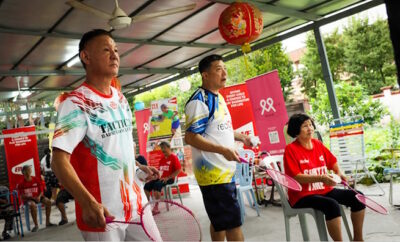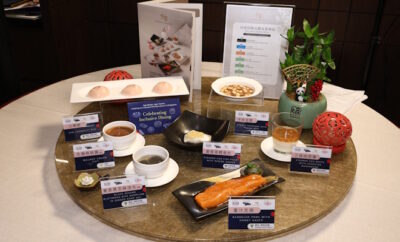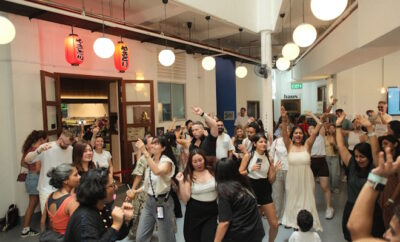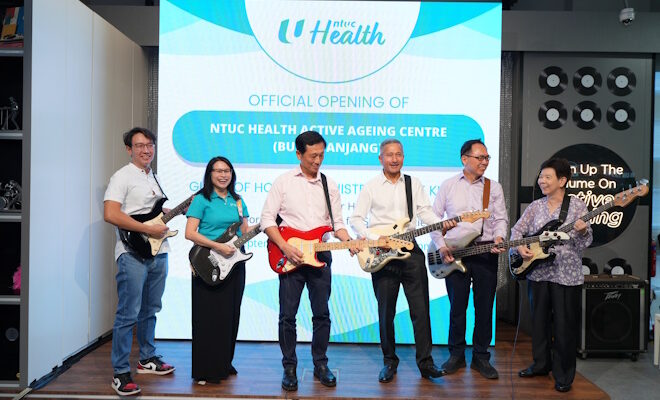
The Gen XY Lifestyle
High-Tech and High-Touch: How Singapore is Helping Seniors Stay Safe and Well-Fed
As Singapore’s population ages, ensuring our seniors can live well and independently is a growing priority.
Many adult children worry about their parents’ risk of falling or whether they’re eating properly, especially if they live alone. To tackle these challenges head-on, new initiatives are bringing high-tech screening and community-based research directly into the neighbourhoods where seniors live.
The new programmes were announced at the opening of NTUC Health’s 25th Active Ageing Centre (AAC) in Bukit Panjang—the first of its kind to be co-located with a hawker centre.
Using AI to Predict and Prevent Falls
Falls are a major health risk for the elderly, but traditional fall-risk assessments often require inconvenient trips to a clinic. A new pilot programme aims to change that by making screening simple and accessible.
NTUC Health is collaborating with tech company CaptureProof and the National University Health System (NUHS) on a technology-enabled fall screening initiative. Using cameras and AI, the CaptureProof system analyses a senior’s gait, walking speed, and balance to generate insights on their individual fall risk. The assessment is done right at the AAC, saving seniors a trip to the hospital. Based on the results, they can be referred to a range of interventions, from strength-building exercises to physiotherapy.
The convenience is a huge plus for seniors. Mdm Yeoh, 73, who was screened at the Boon Lay AAC, shared, “Having the assessment at the AAC is much more convenient; I don’t need to queue at the hospital and wait for a long time.”
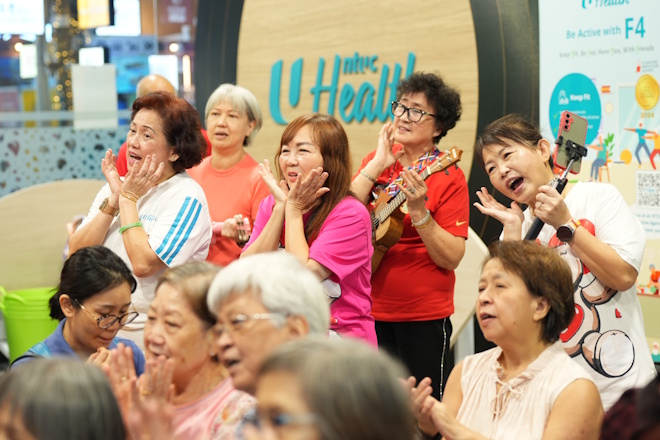
Tackling Malnutrition in Socially Isolated Seniors
Another key focus is the often-hidden issue of poor nutrition among seniors who live alone. While communal dining programmes work well for the socially active, they don’t always reach those who are more isolated.
“Many consider it too troublesome to cook for one, find supermarket portions too large, or encounter practical difficulties such as oral health issues,” explained Dr. Lily Yeo, Head of NTUC Health AACs. This can lead to a reliance on processed foods over fresh produce.
To address this, NTUC Health is partnering with the Geriatric Education and Research Institute (GERI) on a study to better understand these unique challenges. The goal is not to design solutions in isolation, but to involve the seniors themselves in the research process.
“We are looking to bring in older adults into the research process as valued stakeholders so we can develop an intervention that fits their real-world circumstances and preferences,” said Dr. Zoe Lim, the project’s Principal Investigator at GERI.
The Power of Partnerships
These initiatives highlight a broader strategy of using partnerships to enhance support for all seniors, especially those who are harder to reach.
“While our expanded range of innovative programmes have enabled us to engage a majority of seniors, we must also remember those segments who remain harder to engage,” said Ms Chan Su Yee, CEO of NTUC Health. “Supporting them is just as much a part of our AACs’ mission.”
With plans to expand to 27 centres islandwide over the next year, NTUC Health continues to build a community network aimed at ensuring every senior has the resources to age well.
Pictures courtesy of NTUC Health.
Note on individuals to Cover picture, from left to right – Mr Edward Chia, Adviser to Holland-Bukit Timah GROs (Zhenghua), Ms Chan Su Yee, Chief Executive Officer of NTUC Health, Mr Ong Ye Kung, Minister for Health and Coordinating Minister for Social Policies, Dr Vivian Balakrishnan, Minister for Foreign Affairs and Adviser to Holland-Bukit Timah GROs, Mr Liang Eng Hwa, Adviser to Bukit Panjang GROs, Ms Chan Lai Fung, Chairman of NTUC Health.

